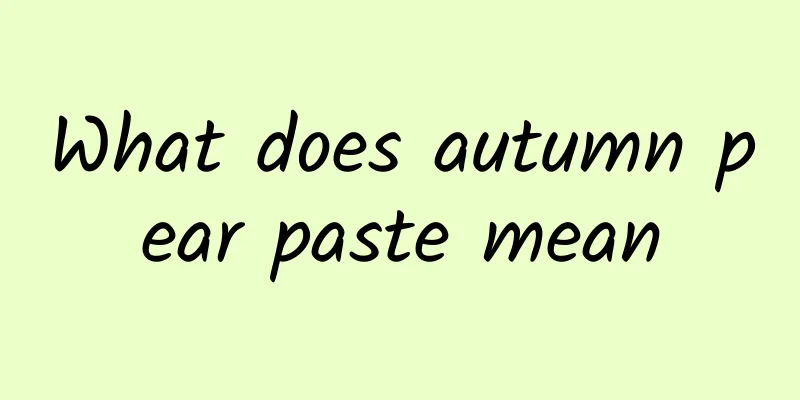What are the characteristics of autism in children?

|
Autism in children usually manifests itself as difficulties in children's interpersonal relationships and communication. It often occurs before the age of three and is most serious at the age of five. However, many parents are not very clear about this aspect and therefore do not know that their children have autism, thus delaying treatment. The following article mainly provides a detailed introduction to the characteristics of childhood autism. We hope that every child with autism can grow up normally like an angel. 1. No feedback on your own name Children with autistic tendencies have no response when others call their names, and rarely respond even when their parents call them. 2. Difficulty in eye tracking Children's vision develops differently, but children with autism tendencies will not follow the movement of their favorite objects. A mother can take a child's favorite toy or food, but the child's eyes will not follow the mother's hand movements. 3. Quiet After having children, many parents feel that their children are too noisy and really hope that they can be quiet for a while. But autistic children do fulfill their parents' wishes, and they prefer to play by themselves in a corner of the room where no one pays attention. 4. Avoiding eye contact Children with autistic tendencies generally do not express emotions through their eyes or communicate with people using their eyes. Most of them avoid people's eyes and are sensitive and timid. 5. Poor imitation ability Many children will imitate the tone and voice of cartoon characters and their parents, but these children will not do that. 6. Prefer to be alone Children with autistic tendencies seldom play with children of the same age. They always like to play by themselves and do not talk to other children. 7. Will not actively ask for hugs This type of children gives us a very mature feeling, they will not take the initiative to let their parents hold them. 8. Poor communication skills Since these children communicate less with others, their natural language skills are not very good. Therefore, there will be certain obstacles in language expression, and it is difficult to clearly express one's joy, anger, sorrow, and happiness. 9. Rarely disturbed by the outside world We often see that when there are several little children together, if one child cries, the other will cry too; if one laughs, the other will laugh too. But children with autistic tendencies will not be disturbed by the surrounding atmosphere. 10. No friends of your own Every child has friends with whom he or she has a good relationship, but children with autistic tendencies have poor interpersonal relationships and find it difficult to make friends because they do not communicate or play games with others. 11. The order of language is confusing Children with autism have disordered language order and sometimes they call themselves. 12. Unsteady walking These children usually have an unusual walking posture, sometimes walking on tiptoe or with their chest hunched. 13. Poor sense of direction Children begin to have a concept of direction from infancy, but children with autistic tendencies find it difficult to distinguish between east, south, west, north, or left and right. |
<<: What happens when a child with autism grows up?
>>: Do autistic people interact with their parents?
Recommend
What to do if your ovaries are enlarged after transplantation
As people are under increasing pressure in life a...
What to do if your throat itches and you have a dry cough
If you experience an itchy throat and dry cough, ...
What is sweating all day?
Exercise can make our bodies healthier, and even ...
How to remove heart surgery scars?
Heart disease is a disease that has a very big im...
Is the Yin-nourishing, fat-removing and hair-growing oral liquid good for treating hair loss?
When people reach middle age, they will experienc...
What to do if you have a concussion and dizziness
The most common and typical symptom of concussion...
How to check for gout, detection methods for gout
Gout is a joint disease that is common in middle-...
What is the function of Artemisia capillaris?
Artemisia capillaris has many medicinal effects a...
How to make Chuanbei Huangpi honey
Chuanbei and Phellodendron chinense are two commo...
Pain near right shoulder blade
Pain occurs near the right shoulder blade, which ...
What to do if left eyelid spasms
Eyelid spasms are quite common in daily life, tha...
What causes sour smell in sweat
Sweating is a normal physiological phenomenon of ...
Effect of adding sesame oil to baby tea
Haier tea is actually a traditional Chinese medic...
What can’t you eat if you have hemorrhoids? Come and see some tips for preventing hemorrhoids.
As the saying goes, nine out of ten men and ten o...
Do you really know what harm kidney deficiency has?
Many people simply believe that kidney deficiency...









